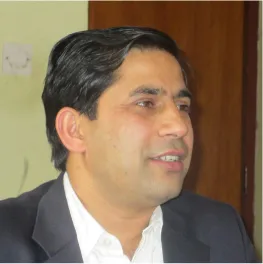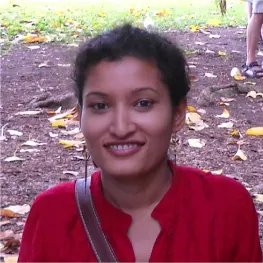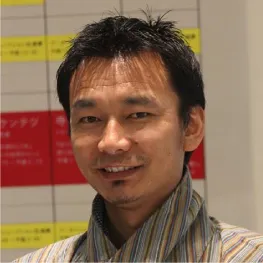![]()
III. ADB–JSP Helps Students and Alumni Achieve Their Career Aspirations
22. The Asian Development Bank–Japan Scholarship Program (ADB–JSP) is focused on building the capacity of countries to make well-informed decisions and carry out effective socioeconomic reform. The program is an invaluable resource for building the skills and capabilities needed to prosper in the highly interconnected global economy. ADB–JSP scholars are potential future leaders who are expected to tackle development challenges in their home countries. The following are some success stories of ADB–JSP scholars and alumni.
Narayan Prasad Nihure (Nepal), Asian Institute of Management, Master in Development Management, January 2011–December 2011
I, Narayan Prasad Nihure, a civil engineer working with the Department of Roads, Nepal, realized the importance of involvement of many stakeholders while developing roads in Nepal. The different stages of development of roads and highways need sound leadership and managerial skills to get the desired output. As a development practitioner, I felt the need for managerial as well as leadership skills in several stages of my professional life for effective and efficient implementation of the road projects. As the result, I tried and succeeded in securing an ADB scholarship under the ADB–JSP to pursue my master in development management in Asian Institute of Management (AIM), a reputed institution in Asia, and graduated in 2011. Without ADB support, my desire to graduate from AIM would have remained a mere dream.
The ADB–JSP provided me with a golden opportunity to better understand stakeholder dynamics for project planning, development, and management via a master in development management degree. Especially, strategic management and systematic thinking along with negotiation and conflict management techniques are crucial in the project implementation phase and have made me confident enough to handle developmental problems after graduating from AIM. The tools and techniques of project management, leadership, and strategic management helped me think more critically and analytically when faced with strategic decisions. By providing a platform for sharing and integration of knowledge, skills, and attitude among international development practitioners and experts, my stint at AIM boosted my confidence in solving the complex issues of peace and sustainable development in the physical infrastructure sector in the backdrop of scarce resources in the 21st century. I got more confidence, motivation, and enthusiasm to work for sustainable and well-managed physical infrastructure development in the road sector.
After graduation from AIM, I was appointed project engineer for the Kathmandu Valley Road Improvement Project by the Government of Nepal. I worked for almost 3 years for this project, being responsible for project planning, development, procuring, and implementing along with construction supervision, contract management, and administration. The road networks with more strategic importance were under the jurisdiction of my project. I worked as site in charge for improving the eight-lane Maitighar–Baneshwor road (four as speed lanes and four as service lanes) along with other facilities of footpaths, cycle tracks, green belts, etc. It is the first large strategic urban road in Kathmandu Valley to be improved by Nepalese engineers and is becoming a demonstration model for the Government of Nepal. I was also responsible for other strategic urban roads.
Furthermore, on 13 April 2015, I was selected as senior divisional engineer—highway (gazetted second class officer, undersecretary level) through competitive exam conducted by the Public Service Commission of Nepal and was appointed on 15 April 2015, by the Ministry of Physical Infrastructure and Transport. Now, I am working as senior divisional engineer for the Nepal India Regional Trade and Transport Project for upgrading the most important national highway named Narayanghat–Mugling Road under World Bank funding.
Anuj Shrestha (India), Asian Institute of Technology, Master in Business Administration, August 2012–May 2014
I had been working as a software engineer for Accenture, India, always contemplating pursuing a master of business administration to further my career but could not pursue it due to lack of funds. The ADB–JSP scholarship not only made it possible to pursue a master’s degree but also helped me experience a truly global education at Asian Institute of Technology. The scholarship helped me focus on my studies and develop as a global citizen due to interactions with students of many nationalities.
My master’s from the Asian Institute of Technology enabled me to boost my personal and professional life with increased job opportunities and an international network of friends. After my graduation, I started working as a project manager at an information technology startup and I am proud to be part of a growing company which creates multiple jobs for the youth of India.
Rakhmat Syarip (Indonesia), Ritsumeikan Asia Pacific University, Master of Science in Asia Pacific Studies, September 2013–September 2015
Before coming to Japan, I worked as a teaching and research assistant in the Department of International Relations, University of Indonesia. I was involved in many research projects from the Indonesian National Development Planning Agency, the Ministry of Trade, Japan International Cooperation Agency, and so on.
Having a master’s degree is an important step in my career. I wish to work as a researcher in the future and I am really grateful to ADB for the opportunity. In Asia Pacific University (APU), I got what I came for. I was astonished with their high-quality research facilities and highly qualified faculty members. I found a productive learning environment and, thanks to APU’s multicultural setting, very dear friends from all around the globe.
During my master’s course, I did research on the response of Southeast Asian trade policy to the Trans-Pacific Partnership, a mega-regional free trade agreement proposed by the United States. I got a chance to present part of my findings in the Asia-Pacific Conference, held in Beppu, Japan. I also won a Field Research Support Program from the Ritsumeikan Center for Asia-Pacific Studies, by which I was able to conduct numerous interviews and other data-gathering activities in Indonesia and Malaysia in Spring 2015. Outside the academic work, I represented APU graduate students for the Ritsumeikan Trust Chancellor Election.
Hisila Manandhar (Nepal), East–West Center, University of Hawaii at Manoa, Master’s in Urban and Regional Planning, August 2011–August 2013
Education and experience are both necessary components for the enrichment of knowledge for any student or professional. Before going to Hawaii, I was working as an architect and a lecturer at a school of architecture in Nepal. The opportunities given to me by the ADB–JSP scholarship and East–West Center widened my horizons and gave me a broader perspective on my life. Not only did it change my views on how my profession could develop, it also made me a better person.
After returning to Nepal, I started working as an urban planner at Kathmandu Valley Development Authority, a government organization based in the capital city of Nepal. Since then, I have been involved with planning research and development projects for the valley. In the wake of the recent catastrophic earthquake (April 2015), the value of the contributions that professionals possessing expertise in areas such as mine can make has increased very much. The courses I took on “Disaster Management and Humanitarian Assistance” among other master’s degree classes at the University of Hawaii at Manoa made me more perceptive to pre- and post-disaster planning needs in a country like Nepal. I am glad that I along with my colleagues can offer an even more meaningful contribution to my country in its hour of need.
Ugyen Wangchuk (Bhutan), National Graduate Institute for Policy Studies, Master of Public Policy, October 2012–September 2014
My academic career at Graduate Institute for Policy Studies has provided me with numerous experiences, thanks to all the highly learned professors and very friendly faculties. Also, my greatest accomplishment to date has been receiving the ADB–JSP scholarship; thanks to the...





